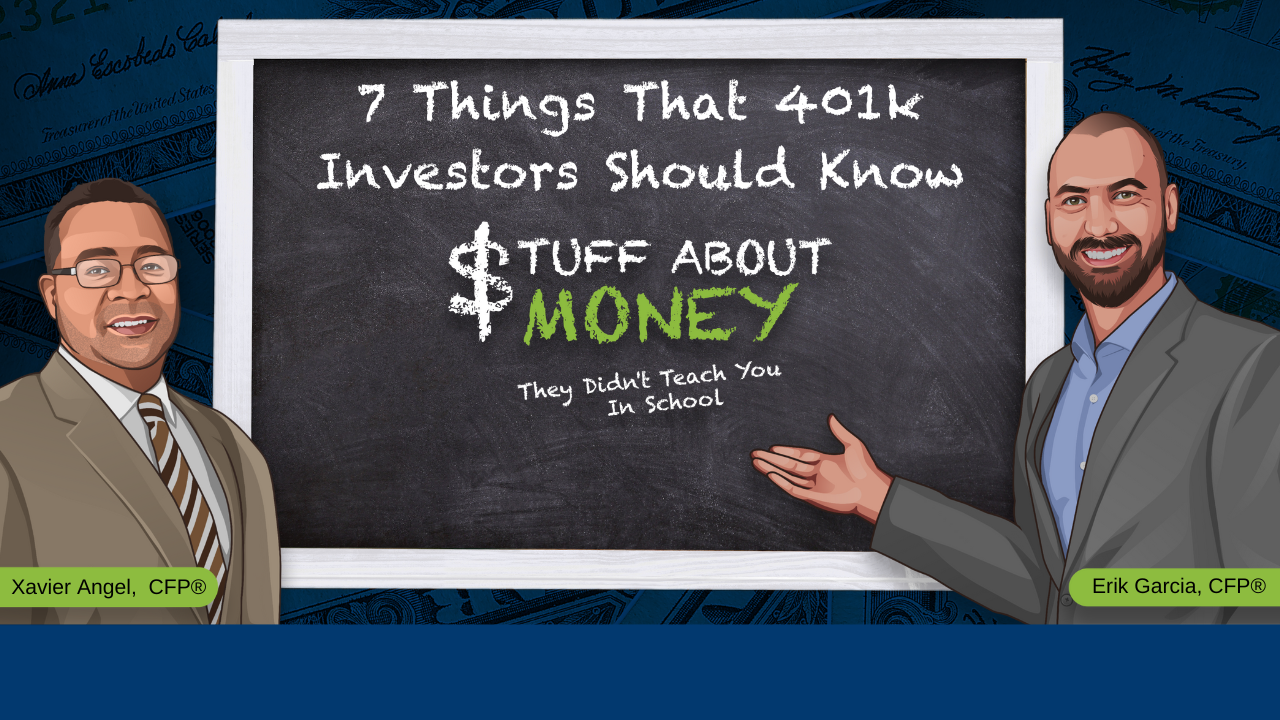7 Things That 401k Investors Should Know

For everyone that’s a 401k investor out there: How well do you understand your investment? Some might know more than others, but no matter how much about retirement investing you know, being familiar with the concepts on this list can give insight, clarity, and confidence to the investment process.
In this episode, Xavier Angel, CFP®, ChFC, CLTC, takes the show on the road (perhaps “golf course” is more fitting?) as Erik Garcia, CFP®, BFA, jokingly casts accusations of day-drinking. The two then get down to the nitty gritty, talking about everything from risk and matches to dollar-cost averaging.
Episode Highlights:
- Erik explains the importance of diversification for 401k investors. (3:45)
- Erik mentions that diversification does not necessarily ensure good results, but it allows you to invest in a collection of stocks rather than being dependent on one. (8:47)
- Xavier and Erik explain the concept and power of compound interest. (9:48)
- Erik discusses why it is important to understand dollar-cost averaging when investing in your 401k. (13:35)
- Erik and Xavier explain the impact of emotions in investing. (15:49)
- Erik mentions that emotions often tell us something and that we should pay attention to them. However, emotions are poor advisors when it comes to financial decisions. (16:14)
- Erik believes that risk is ubiquitous which is an important concept when investing in a 401k. (18:44)
- Erik discusses several ways to control stock market risks. (20:47)
- Erik explains the difference between Roth and Traditional 401k contributions. (26:24)
- Xavier and Erik discuss whether it is better to invest in a Roth or Traditional 401k. (27:42)
- Erik and Xavier re-evaluate the 401k concepts that everyone should understand. (33:41)
Key Quotes:
- “Diversification does not guarantee positive returns, diversification doesn’t mean your money’s going to grow. What that tends to mean, again, is that you’re not betting on one type of company or one type of mutual fund. You have the chance of if one does poorly, that hopefully the other does better.” – Erik Garcia, CFP®, BFA
- “Oftentimes, emotions tell us something and we need to listen to them. But when it comes to financial decisions, emotions are bad advisors. .” – Erik Garcia, CFP®, BFA
- “One of the reasons why we recommend you partner up with an advisor with a planner, that individual is going to help you to sit down and look at what your risk capacity is and allow you to make those the proper choices when coming to the investment side.” – Xavier Angel, CFP®, ChFC, CLTC
